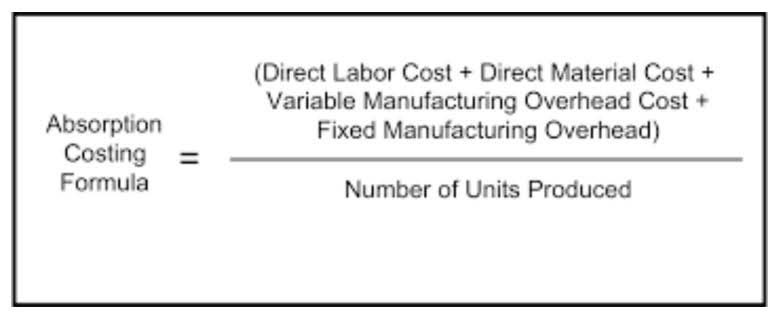Content
- What is Drop Shipping?
- Company’s Sales for Resale to Subsidiary Don’t Require Registration and Collection of Virginia Sales Tax
- What tax do I need to pay?
- What is drop surfing?
- Sales Tax 101: I’m in a Drop Shipping Relationship. Now What?
- Sales tax compliance solutions for drop shipping
- Taxes 101: How to pay taxes when Dropshipping

Since Debbie is drop shipping the product to Bobby at her ship-to address, Debbie would be required to charge sales tax from the buyer, Ron Retailer, if Bobby is located in a state where Debbie has nexus. Worldwide retail ecommerce sales could reach $6.169 trillion in 2023 and comprise 22.3% of total retail sales. If you’re part of that rising tide, you need to know how to tax shipping and delivery charges. If your business is located in the EU…Then you must charge VAT on each EU sale.
You may be required to collect sales tax for your dropshipping products, depending on whether their state or your customers’ state has a sales tax. And if your dropshipping supplier has nexus in the drop shipping sales tax state, but you do not, they may be required to collect sales tax. In this case, Ron has given proof to Debbie that she does not have to collect sales tax from him, because he is also a retailer.
What is Drop Shipping?
If you have nexus in a state, and that state taxes shipping costs, then you will be required to collect sales taxes on those orders. For many small businesses, remote sales offer the opportunity to target customers all over the country and simply ship the orders to those customers. But shipping does present its challenges, and sales tax is part of that.
- That’s because all retailers — dropshippers included — have to pay sales tax in a state if they have what’s called a “nexus” in that state.
- Determining the “place of supply” can differ based on your business location, what you sell, and to whom.
- Together, you can create a plan that helps you stay on the right side of tax laws.
- For example, with Gun Dog Supply we have over 100 vendors, most of whom don’t drop ship.
- If your business is located in the EU…Then you must charge VAT on each EU sale.
Optionally, if you want to add more regions and account numbers, click on Collect sales tax again. Also, read our previous article about dropshipping in Canada. Your business has to charge GST or HST in Canada unless it qualifies as an exception. That’s why it is crucial to understand the exceptions and the https://www.bookstime.com/ requirements for charging, collecting, and remitting this kind of tax in the country. This tax is added to the base price of each product and is charged by your supplier at an average rate of 10%. To avoid any surprises, it’s important to inform your customers in advance about potential customs duty taxes.
Company’s Sales for Resale to Subsidiary Don’t Require Registration and Collection of Virginia Sales Tax
Paying dropshipping taxes is a necessary part of running a dropshipping business. To avoid unexpected costs and fines, you must acquaint yourself with the most common types of dropshipping taxes that you have to pay. If you’re the seller, you’re generally required to collect sales tax only if you have nexus with the customer’s state. As noted above, that typically occurs through physical presence or a certain threshold of economic activity in the state.

Similar to sales tax, our suppliers impose a percentage-based charge on the total purchase amount, which typically averages around 10%. Each type needs different responses from the business owner. However, in the end, the customer is the one who pays the sales tax. The name is consumption tax for a reason, because it is based on how much the consumer engages with the market.
What tax do I need to pay?
Moreover, as a dropshipping store owner, the amount of income tax you have to pay depends on your profit and the location of your business. With dropshipping, two different purchase orders are going through, the one the customer makes on your site and the one your business makes to your dropshipping supplier. Determining who pays the tax and where it is paid is something you should know before starting the business. A company with no operations or physical presence in Virginia is not required to register or collect sales tax on sales for resale it makes to a subsidiary. In this post, we’ll explain the general rules around sales tax for dropshippers, plus how to comply with tax rules in major world markets. We highly recommend that you consult an accountant with experience with sales tax if you plan to embrace dropshipping in your eCommerce business model.
The United States has a federal income tax, but most U.S. states also have state income taxes, too. Stamps are generally exempt from New York sales tax if purchased for the purpose of mailing, but taxable if purchased for some other purpose. For most established stores, this means that they will likely only have to start collecting and paying sales tax in a small percentage of states – likely the large ones such as New York City. Each state in the US manages their own sales tax e.g. tax rates and (to some extent) their own tax rules. So, instead of the federal government imposing tax, the state itself carries this responsibility in its own hands.
Assuming that your customer is the end-user of the products sold, this second sale is a retail sale and is taxable as dictated by the laws of the state where your customer is located. When it comes to sales tax on shipping costs, each individual state has its own requirements and the more states you deal with, the harder it can be to keep up with everything you need to know. But it’s crucial for small businesses to make sure they are following these rules. Negative consequences resulting from noncompliance can be overwhelming for small businesses with limited resources. Of all of the taxes you’ll pay as a dropshipper, none are more complex than sales tax.
- When you stock merchandise yourself, you have a lot more control over these costs.
- To start collecting sales tax, you need to get a sales tax permit from the state.
- Once you get the hang of it, dropshipping taxes will become just another cog in the machine that is your dropshipping business.
- Drop shipping creates a convoluted web of possible scenarios for who collects sales tax from whom, especially when the buyer, seller, and drop shipper are spread across multiple states.
- Some states only accept in-state issued certificates, while others accept multi state certificates.
Because you resell products, you can apply for an exemption from the Multistate Tax Commission. Keep in mind that this exemption only applies to 36 U.S. states, so this won’t exempt you from sales tax everywhere, but it can certainly lighten the load. In many ways, drop shipping is a win for everyone involved. But because drop shipments involve one customer, two businesses, two sales transactions, and often two or three states, they tend to complicate sales tax compliance for both the seller and the supplier. It gets even more complicated as some states have stricter rules than others. While this does not include every state, tax expert Diane Yetter claims there are “approximately 11 states” that require sellers who would like a resale certificate to be registered in that state.
